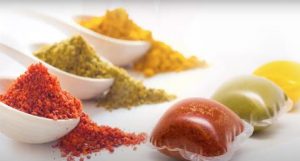Whether it’s recyclable, compostable or repulpable, Kuraray has product and packaging needs covered
Think of the hand wash bottle at your restroom sink – or the brightly colored sunscreen cream container in the cupboard and answer this simple question: How likely is it that the receptacles will be disposed of once their contents run dry? And what is the chance they will be replaced by a new, identically-performing rigid plastic bottle in the not too distant future?
We all know the answer, and we’d probably put money on it. But what we perhaps don’t understand is, why? When most of our household products come in fully reusable dispensers – many don’t have to look beautiful for anyone – yet they seldom survive in our homes beyond a single use. Could it be that supermarket refilling stations lack universal appeal? And if so, perhaps MonoSol’s compact unit dose refill concept is a viable option. One might wonder why such a simple solution hasn’t been imagined before. Well, it has, and you’ll probably use one today.
Now you see it…

Spice it up: Pre-measured packs ensure recipe perfection every time
The MonoSol division of Japanese chemical producer Kuraray perfected the unit dose product approach over many years. It partnered with detergent industry giants back when most of us were still washing dishes by hand.
When dishwashers were invented, we were so happy our lives had changed for the better, we likely thought little of the film containing that mix of dish cleaning compounds – like enzymes, bleach and surfactants.
That film is made of unique water-soluble material that has been around for quite some time, but only recently begun attracting increased interest as a tool to help products reduce waste and improve sustainability. We call it ‘disappearing polymer technology’, says Yash Parulekar, MonoSol’s head of global product stewardship.
Read more about Kuraray’s product and packaging solutions for the circular economy from EVAL, Kuraray POVAL and MonoSol in the full article at Chemistry World.

